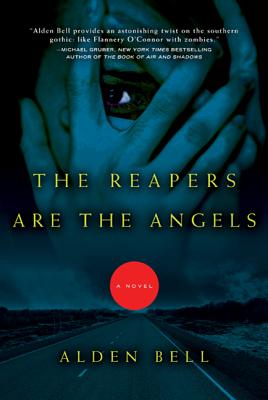I recently revisited book in audio format, and it proved just as enjoyable and refreshing the second time around as it had the first.
The Secret Life of Bees follows the story of Lily Owens, daughter of T. Ray Owens, a hard and sometimes cruel father. Her life consists of avoiding T. Ray's anger and daydreaming of her mother, who died when Lily was young - at least until she gets fed up with all of it and runs away to Tiburon, South Carolina, a town scratched on the back of a photo she found in her mother's belongings. What she finds there is a house full of black women, where she makes a kind of home for herself with the Beauright sisters - a shocking development in the life of a skinny little white girls in 1960s South Carolina.
Worshipping a statue of a black Madonna, harvesting honey from bee hives across the town, and watching race contests play out across the state, Lily struggles to come to peace with the loss of her mother and her self-determined status of unloved child. Ultimately, Kidd's novel is a coming-of-age tale, in which Lily - and the reader - learn to look for love in the most unlikely of spots.
According to her memoir, Traveling with Pomegranates, Sue Monk Kidd set herself to writing this novel while traveling through Greece with her daughter. She made her prayer and promise to both herself and to a black Madonna; the reader does not have to look far to find the seeds for The Secret Life of Bees in these journeys. The black Madonna, the bees, the honey - every symbol here is carefully and meaningfully researched, layered upon each other and upon the story, peeling back one bit at a time until the very last page.
Kidd's writing itself is also layered and beautiful, capturing the spirit and often distorted logic of a young, confused girl trying to make her way in an unloving world:
"Next to Shakespeare I love Thoreau best. Mrs. Henry made us read portions of Walden Pond, and afterward I'd had fantasies of going to a private garden where T. Ray would never find me. I started appreciating Mother Nature, what she'd done with the world. In my mind she looked like Eleanor Roosevelt."
Remember those times, when you match strange faces with faceless things? The times when you are discovering new kinds of literature for the first time, and they open your eyes to a new world around you?
But beyond this somewhat hopeful child's voice, the voice of a child who wants to love the world she's in, Lily's world, twisted and turned like a prism reflecting the sunlight by Kidd's prose, is one of hurt, of confusion, of misunderstanding.
"Probably one or two moments in your whole life you will hear a dark whispering spirit, a voice coming from the center of things. It will have blades for lips and will not stop until it speaks the one secret thing at the heart of it all. Kneeling on the floor, unable to stop shuddering, I heard it plainly. It said, You are unlovable, Lily Owens. Unlovable. Who could love you? Who in this world could ever love you?"In the end, the unraveling of this distorted worldview is what comprises Sue Monk Kidd's debut novel - it is a story of religion, of peace, of nature, of life, of death, of love, of mothers.
"My chest hurt from feeling things. I wondering if T. Ray was pacing the floors feeling as injured as I hoped he did. Maybe he was telling himself what a rotten excuse for a father he was for not treating me better, but I doubted it. Thinking up ways to kill me was more like it."
Bottom Line: Both Traveling with Pomegranates and The Secret Life of Bees reflect Sue Monk Kidd's emphasis on mothering and motherhood as a main aspect of our lives. In The Secret Life of Bees, this story is told from the point-of-view of a motherless daughter, struggling to define love for herself. With a dynamic, colorful (literally) and often hilarious cast of characters, Lily's world is revealed to us one step at a time, her secrets peeled back and new lights cast upon her. Silly hats, honey jars, black Madonnas, and a purse-clutching sisterhood stand beside a cruel father, race riots, angry teenagers and spiteful politicians to keep readers engaged and captivated by both Lily's story and the world she lives in.
A Note On the Audio: The version I listened to (from the public library) was the Books on Tape version (though it was CDs), narrated by Karen White. The version that appears to be readily available on CD through both Amazon and Indiebound is different, narrated by Jenna Lamia - I've listened to a quick excerpt, and must say it would be worth the digging to find the Karen White version instead. Her voice is crisp and clear, easy to understand, never irritating or monotone. She captures the difference between Lily's own narration and her recounting of other's speech subtly, without imitating voices for each character, but it is enough to mark a difference between the two. Overall, an excellent recording - one I'm sad to see is not easier to find on the great wide interwebs.




















